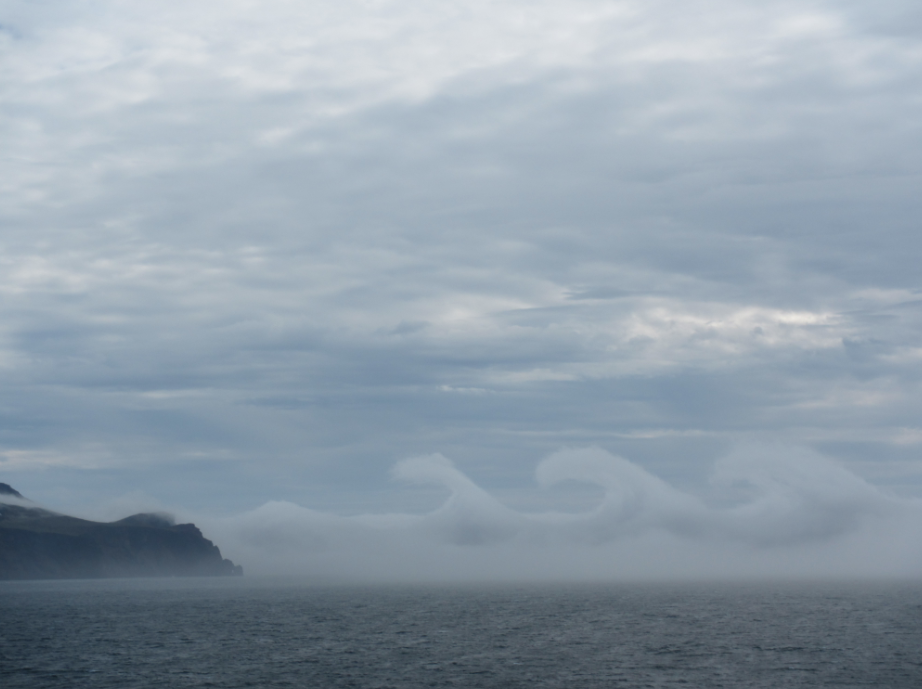
Internal waves in the atmosphere
A photo of internal waves in the atmosphere.
Internal waves exist on the interface between fluids of different densities. In the ocean they are mostly observed through their surface imprint. In the tank, we could also observe them by looking in from the side, but this is hardly feasible in the ocean. But luckily vision is easier in the atmosphere than in the ocean.
On our research cruise on the RRS James Clark Ross in August 2012, we were lucky enough to observe atmospheric internal waves, and even breaking ones (see image above). This is quite a rare sight, and a very spectacular one, especially since, due to the low density contrast between the two layers, the waves break extremely slowly.
It is really hard to imagine what it looked like for real. This movie shows the view of Jan Mayen – the volcano, the rest of the island and then the atmospheric waves. Please excuse the wobbly camera – we were after all on a ship and I was too excited to stabilize properly.

Jan Mayen picture dump | says:
[…] we approached Jan Mayen, the first thing we saw were Kelvin Helmholtz instabilities – breaking atmospheric […]
How can we use interactive flow simulations in teaching of hydrodynamics? | Adventures in Oceanography and Teaching says:
[…] need to recognize, for example, that while a vortex street can be formed in a single-phase flow, a Kelvin Helmholtz instability typically forms on the boundary of layers of different densities in a shear flow (but could also […]